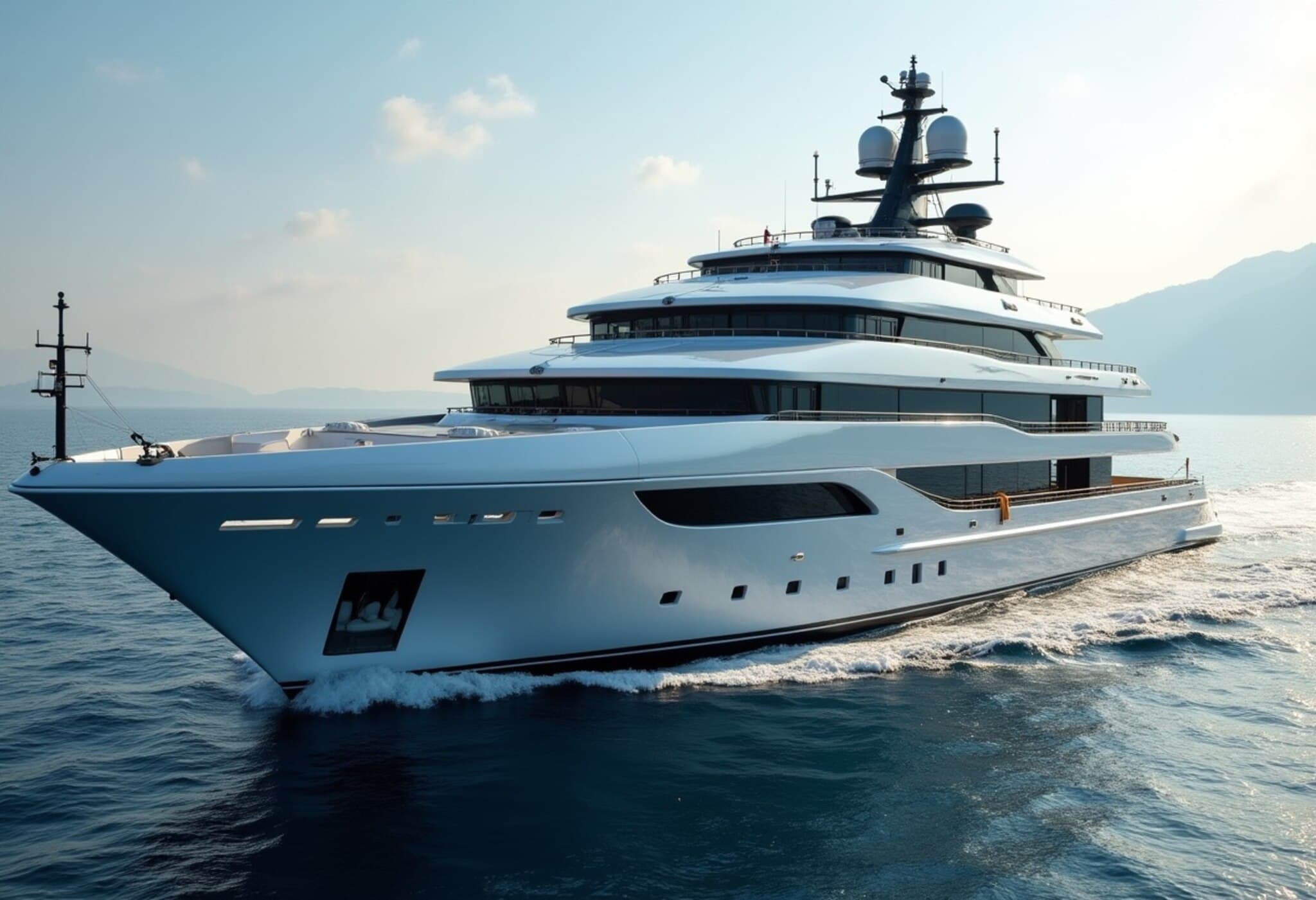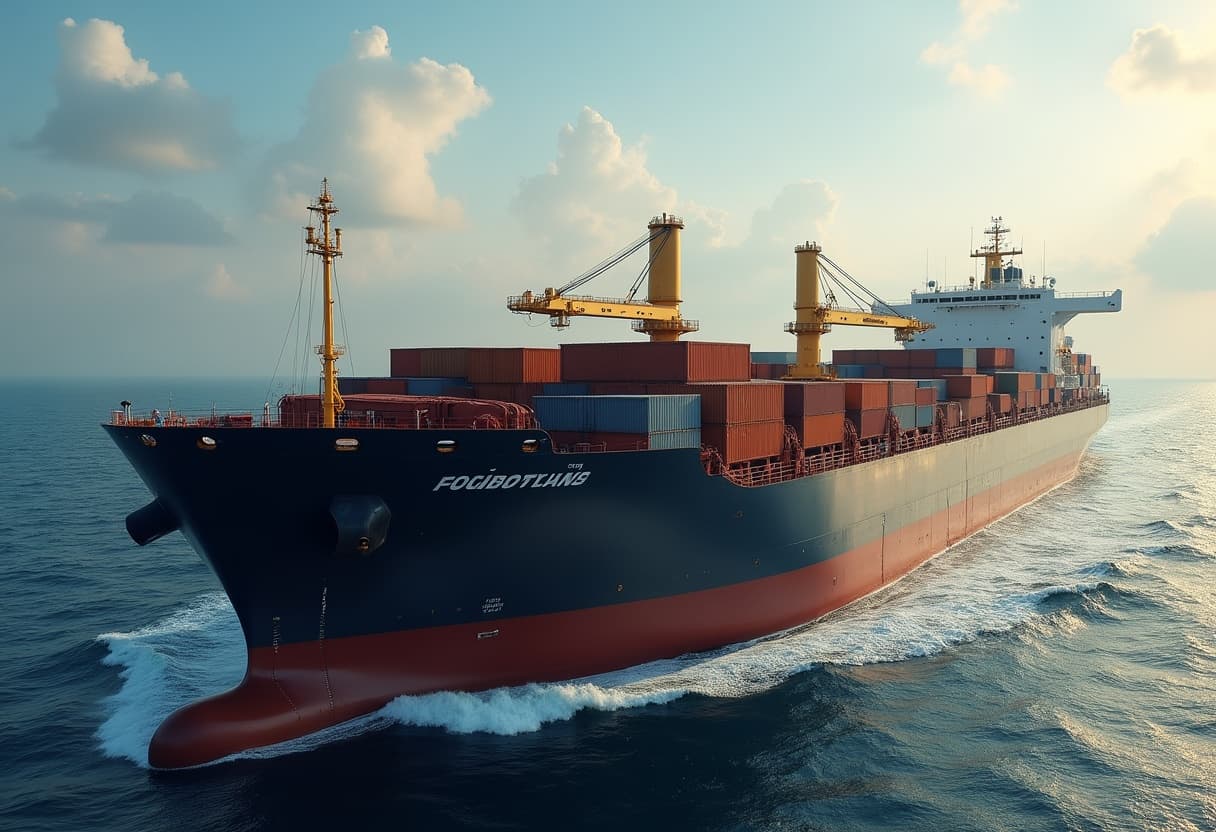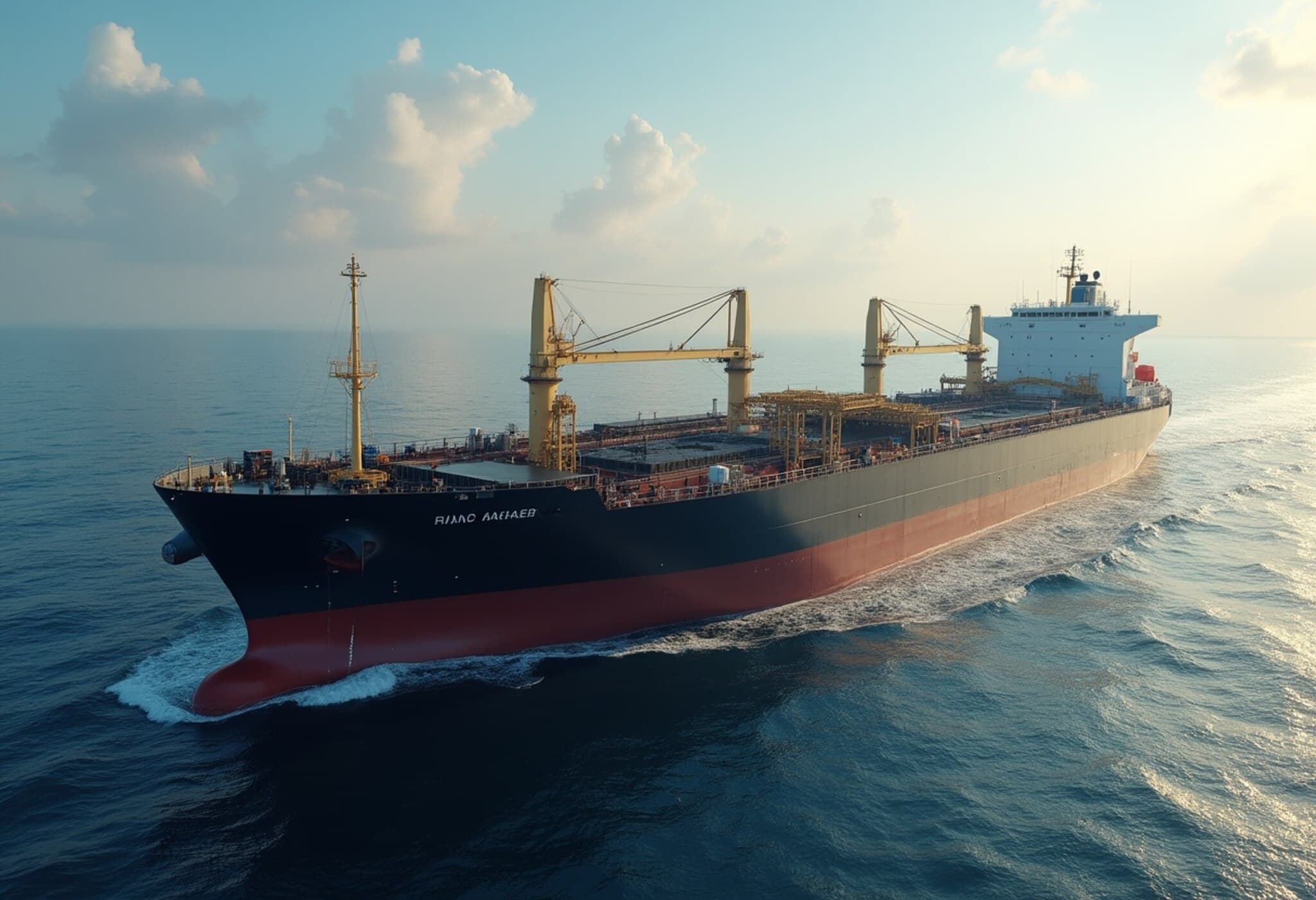US Government to Auction Luxury Russian Superyacht Seized in San Diego
In a rare move since the onset of Russia's invasion of Ukraine, the United States is set to auction off the Amadea, a lavish $325 million superyacht seized in 2022. Located at the San Diego port, the 348-foot vessel exemplifies opulence, boasting amenities such as a helipad, gym, spa, swimming pool, beauty salon, and multiple lavish staterooms.
The Luxurious Legacy of the Amadea
Built by the renowned German shipbuilder Lürssen in 2017 and designed by François Zuretti, the Amadea can comfortably accommodate up to 16 guests with a crew of 36. Its interiors are a masterclass in luxury, featuring extensive marble finishes and a private elevator, making it less a yacht and more a floating palace.
Ownership Controversy Clouds the Auction
Despite its grandeur, the sale of the Amadea is mired in complexities surrounding its true ownership. The yacht is registered under Millemarin Investments Ltd., a company based in the Cayman Islands, a common jurisdiction for opaque asset management.
The U.S. government alleges that Suleiman Kerimov, a Russian economist and former politician under U.S. sanctions for alleged money laundering, is the vessel’s ultimate owner. However, Eduard Khudainatov, ex-chairman of Russia’s state-controlled Rosneft, claims legal ownership and has not been sanctioned.
U.S. prosecutors argue Khudainatov is a straw owner, a front used to conceal Kerimov's stake. Such claims introduce legal uncertainties that potential buyers cannot ignore, especially given the looming risk of prolonged litigation internationally.
Legal Battles and Market Risks for Buyers
Khudainatov’s representative criticized the upcoming auction as “improper and premature,” emphasizing ongoing appeals against forfeiture. They warn potential buyers of costly legal battles and question the market fairness of proceeding without settled ownership.
The sale invites sealed bids, requiring a hefty deposit of 10 million euros (approximately $11.6 million), underscoring the high stakes involved. Meanwhile, the yacht remains largely untouched under National Maritime Services’ custody since 2022.
Strategic Asset Seizures Amid the Ukraine Conflict
The auction represents a broader U.S. strategy to pressure Kremlin insiders by targeting their luxury assets abroad. Since Russia’s full-scale invasion of Ukraine in early 2022, Western governments have deployed sanctions uniquely tailored to hit influential oligarchs close to President Vladimir Putin.
In May 2024, a critical U.S. aid package expanded authorities' power to seize Russian state assets within American borders, channeling resources to support Ukraine. This auction exemplifies how asset forfeiture serves geopolitical aims alongside financial recovery.
Emerging Questions: Economic Impact and Ethical Considerations
- What long-term impacts do such seizures have on diplomatic relations and conflict resolution?
- How will legal precedents evolve concerning cross-border asset ownership and enforcement?
- Could the auction set a blueprint for leveraging seized assets in future geopolitical conflicts?
Experts highlight that while the auction signals resolve, it also raises challenges over legal clarity and asset valuation, potentially affecting U.S. taxpayers and international buyers.
Editor’s Note
The upcoming auction of the Amadea superyacht doesn't just reflect the tangible cost of geopolitical conflict—it exposes a complex web of legal, ethical, and financial questions surrounding ownership and accountability. As the U.S. ramps up pressure on Russian elites, the interplay between international law, asset tracing, and political strategy takes center stage, reminding us of the intricate dance between justice and diplomacy in a volatile global landscape.



















